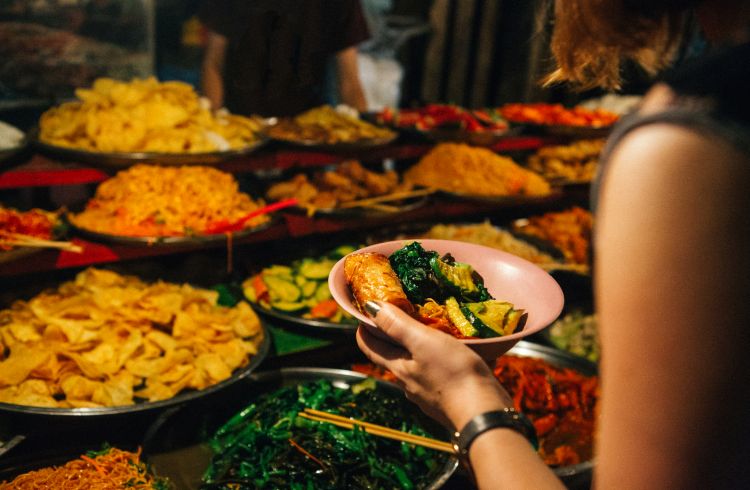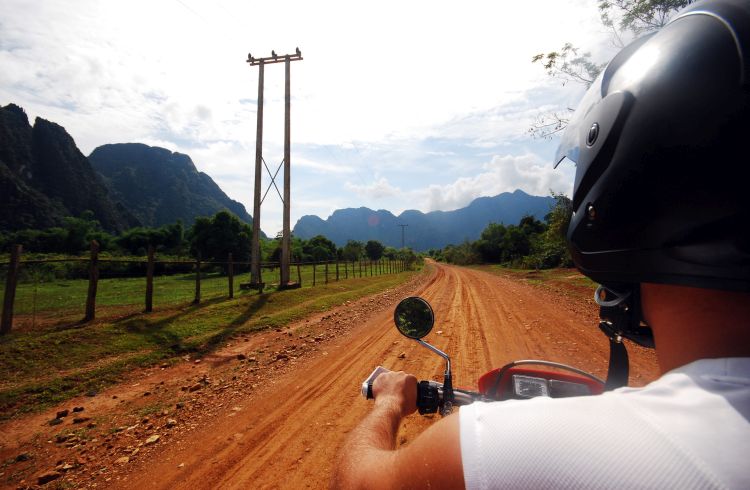How to Stay Healthy While Traveling in Laos
Warm climate, mosquitos and altitude can provide a challenge for any traveler, even for the experienced. Find out how to stay healthy while traveling in Laos.
 Photo © GettyImages/AndreiaTakeuchi
Photo © GettyImages/AndreiaTakeuchi
Laos is one of the least developed countries in Southeast Asia that is still struggling to improve its health system. With very limited medical treatment facilities, the best option for travelers is prevention. Here's how you can avoid some of the common health hazards while traveling in Laos.
- Vaccinations for Laos
- Medical Treatment in Laos
- Food and Water Borne Diseases
- Mosquito-Borne Diseases
- Other Health Hazards
Vaccinations for Laos
Before traveling to Laos, check that your routine vaccinations are up to date and it's recommended to have Hepatitis A and Typhoid. Rabies and Japanese Encephalitis should also be considered if you are planning to travel the country for an extended period, particularly in rural locations and if you are participating in outdoor activities where exposure to animal bites is a risk.
Yellow Fever is not present in Laos however if you have traveled from a Yellow Fever endemic country, you will need proof of vaccination.
Medical treatment in Laos
Laos has poor public health infrastructure, while there have been some improvements in the last few years, Lao's medical facilities are a no-go for major medical emergencies. There are a few private clinics in Vientiane (none in the provinces) but they do not treat serious cases. Bring any medication you need from home and always carry a letter from your doctor explaining what health conditions you have, medication and use. It’s also a good idea to carry a first aid kit particularly if you are traveling to more rural locations.
Food and water-borne diseases
Water and food are the most common causes for many travelers falling ill when visiting Laos. The most common cases are traveler’s diarrhea, stomach bugs and sometimes more serious cases such as cholera and gastroenteritis. You can avoid contracting some of these nasty bugs by observing good hygiene practices and common sense.
Many travelers will eat at local street food stalls and markets which give them to the opportunity to try the local cuisine on the cheap however it’s important to choose your food wisely.
Avoid stalls where food is at room temperature without refrigeration. Make sure the food is hot and well-cooked. If you have concerns then get the dish freshly cooked. Avoid fruit and salads unless you can peel it or know it’s been washed with safe, clean water. Avoid any dishes with raw eggs or dairy.
Avoid drinking the local tap water and only use treated or boiled water including brushing your teeth.
Wash your hands before eating and if running water is not available, use an alcohol-based hand sanitizer.
Mosquito-borne diseases
Malaria
Malaria is a serious disease transmitted via mosquitoes. There is no vaccine available so travelers need to take preventative measures to avoid contracting it. Mosquitoes which transmit malaria are usually active between dusk and dawn. There are numerous anti-malarial medications available however check with your travel doctor before departure as to which would be the most effective. Wear loose long-sleeved light-colored clothing and apply a strong insect repellent. Don’t forget to reapply the repellent after a few hours. To get a decent night’s sleep, it’s a good idea to sleep under a mosquito net, burn mosquito coils and if available, turn on the ceiling fan.
Dengue fever
Dengue fever is also present in Laos. It’s a viral disease transmitted via mosquito bites. With no vaccination available, prevention is the only way to avoid it. Unlike the mosquito which carries malaria, the mosquito which carries dengue is active during the day and more commonly found in urban areas. In worst cases, dengue doesn’t allow blood to clot, which can lead to dengue hemorrhagic fever. It’s very important to visit a hospital if you have symptoms very similar to a very strong flu such as constant high fever, headache and severe muscular pain. Avoid self-medication and let the experts look after you.
Zika Virus
While the risk of contracting malaria or dengue is higher, zika virus has recently been detected in Laos. Zika is transmitted mostly by mosquitoes but also via sexual practices. To avoid zika, take bite prevention methods and always practice safe sex.
Other health hazards
Parasites
Schistosomiasis or bilharzia is another type of infection that is transmitted to humans through contact with freshwater snails. The snails carry worms that enter humans through the skin. Take care when swimming in fresh water on Khong Island in the Mekong River and also Pak Se and Champassak districts.
Opisthorchiasis (tiny worms present in freshwater fish) can pose a risk to travelers so avoid eating undercooked or raw fish.
Heat-related illness
Dehydration and heatstroke can catch out any traveler in Laos, so always stay hydrated and try to reduce activities during the hottest part of the day.
Altitude sickness
Altitude sickness is a problem for travelers looking to explore the mountainous areas of Laos, where altitudes can reach up to 3600m or more. Always protect yourself from the sun, travel slowly to allow your body to acclimatize, avoid alcohol, stay hydrated and get adequate rest. To learn more about this high-altitude condition, check out our article.
Related articles
Simple and flexible travel insurance
You can buy at home or while traveling, and claim online from anywhere in the world. With 150+ adventure activities covered and 24/7 emergency assistance.
Get a quote
No Comments